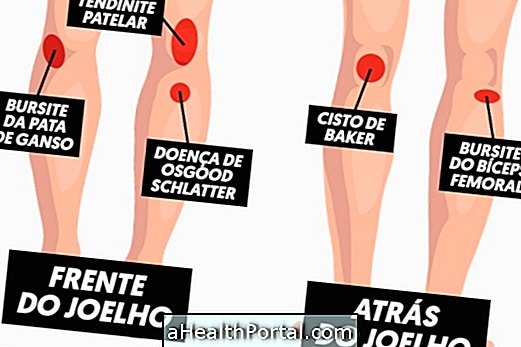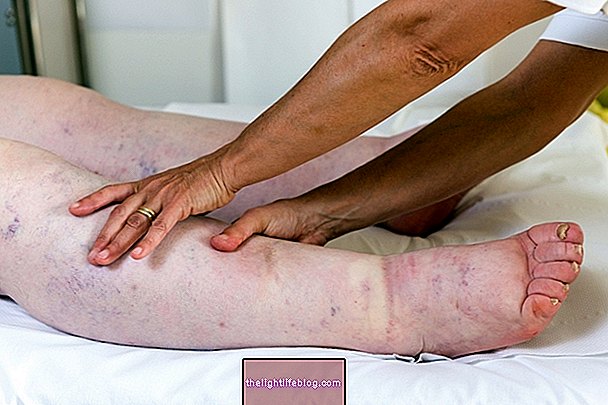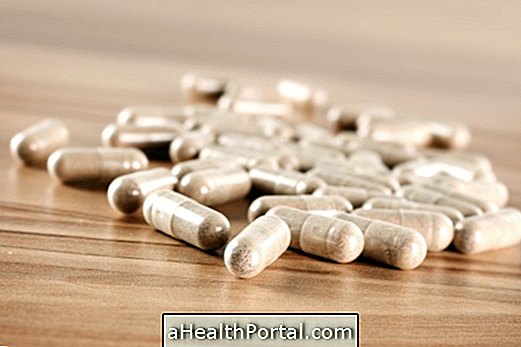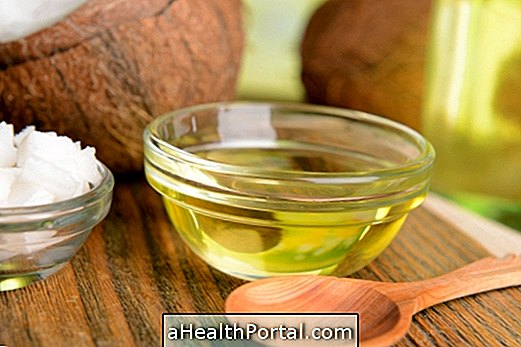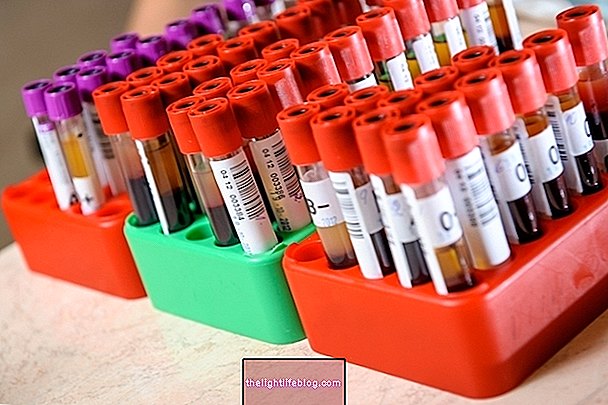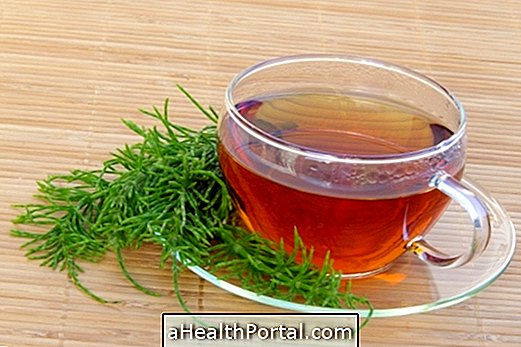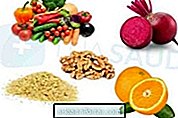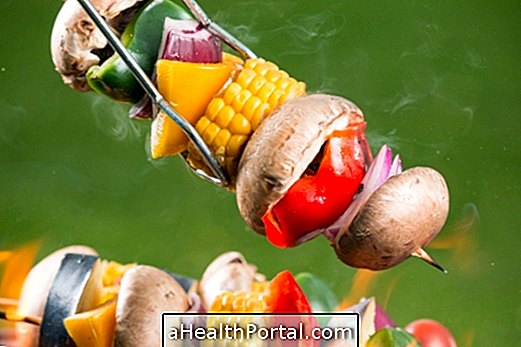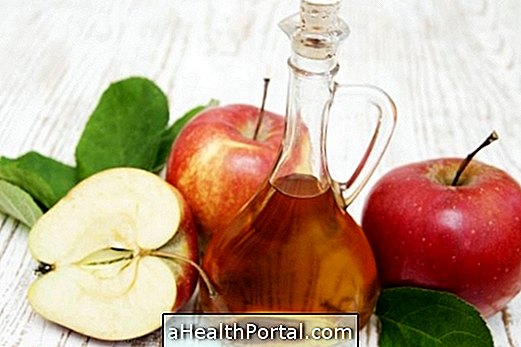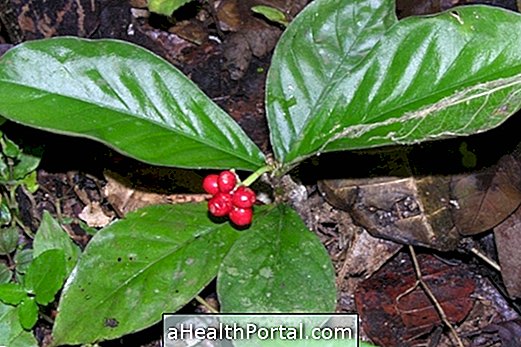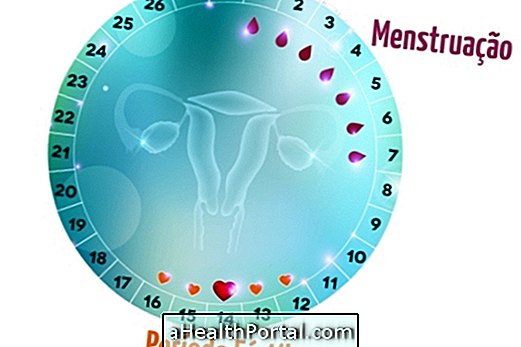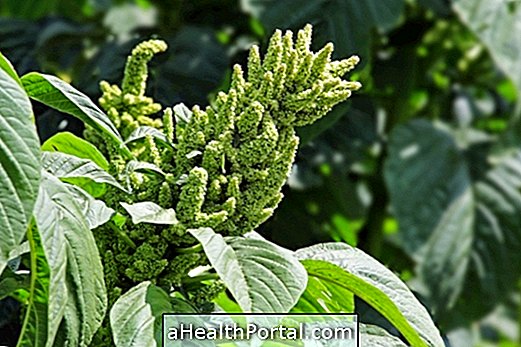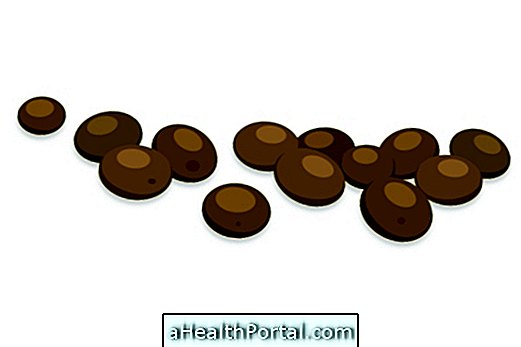Symptoms of intestinal infection, also called gastroenteritis can arise from 30 minutes to 3 days after consumption of food contaminated by viruses, fungi or bacteria.
These symptoms vary according to the type of micro-organism causing, the severity of the infection, the age and health status of the infected person, and may include:
- Abdominal pain and cramps;
- Diarrhea, with blood in the stool;
- Vomiting;
- Headache;
- Loss of appetite;
- Fever.
It is important to remember that the symptoms of intestinal infection are more serious and worrisome in children and the elderly, as they have a greater tendency to become dehydrated and to lose weight.
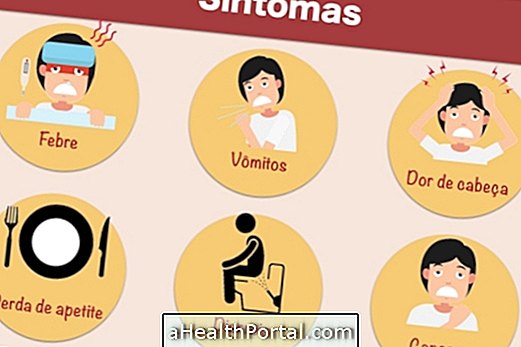
What to Eat in Intestinal Infection
During the treatment of intestinal infection, it is important to drink plenty of water to replenish fluids lost through diarrhea and vomiting, and to consume easily digestible foods such as white rice, pasta, low-season white meats, boiled and shelled fruits, teas with sugar, remembering to avoid caffeinated teas like green tea, black and mate.
In snacks, it is advisable to eat dry biscuits without filling, white bread with fruit jelly, natural yoghurts and white cheeses such as ricotta because they are low in fat and easily digested.
What to avoid in food
While diarrhea lasts, one should avoid consuming vegetables and fruits in shell, even in soups or cooked salads, as they are rich in fiber that will increase intestinal transit and favor diarrhea.
You should also avoid foods high in fat, such as red meat, butter, whole milk, yellow cheese, bacon, sausage, sausage and processed foods, as excess fat also facilitates intestinal transit and makes digestion difficult.
In addition, foods that increase the formation of gas, such as cabbage, egg, beans, corn, peas and sugar-rich desserts, should be avoided as they favor diarrhea and increase abdominal pain.

How to avoid dehydration
To avoid dehydration, it is important to consume at least 2 liters of fluids a day, and you can also use homemade whey, following the recipe:
- 1 tablespoon of sugar;
- 1 teaspoon of salt;
- 1 liter of filtered or boiled water.
You should leave the homemade whey in a separate bottle for the patient to drink throughout the day for as long as symptoms persist. This serum is also indicated for children, pregnant women and the elderly.
When to seek medical advice
The doctor should be sought when symptoms of infection have not improved after 2 days for children and 3 for adults, or in cases of blood in the stool.
In addition, infants younger than 3 months should be taken to the doctor as soon as they experience vomiting and diarrhea, while children older than 3 years should see their pediatrician if symptoms last longer than 12 hours.
Risk Factors for Intestinal Infection
People with weak immune systems, such as patients with AIDS or in treatment for cancer, children, pregnant women and the elderly have a greater chance of having intestinal infection because they have the weakest immune system.
In addition, people who have gastritis or heartburn or who use drugs to control stomach acidity, such as Omeprazole, have a higher risk of having intestinal infection because the acidity of the stomach is reduced, making it difficult to fight viruses and bacteria.
How to prevent
To prevent intestinal infections, it is important to take personal and food hygiene care, such as:
- Wash hands thoroughly after using the bathroom or touching pets;
- Wash hands thoroughly before and after picking on any food;
- Avoid consumption of meat and eggs poorly cooked;
- Consume filtered or boiled water.
As long as symptoms of food infection are present, it is important to avoid preparing food for others to prevent them from getting sick as well. In addition, one should avoid consuming the foods that most cause intestinal infection, like sushi and eggs poorly. See which are the 10 foods that most cause Belly Pain.
Here are the remedies that can be used to treat intestinal infection.
